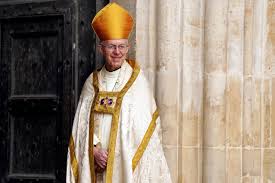The Role and Significance of the Archbishop of Canterbury

Introduction to the Archbishop of Canterbury
The Archbishop of Canterbury holds a pivotal position within the Church of England, acting as its spiritual leader and as a prominent figure in the broader Anglican Communion. This role not only carries religious significance but also influences social and political issues in the UK, making it a topic of relevance in today’s landscape.
Current Developments in the Archdiocese
As of October 2023, the Archbishop of Canterbury is Justin Welby, who has been in office since 2013. Under his leadership, the Anglican Church has addressed a range of contemporary issues, including climate change, social justice, and the role of faith in public life. Recently, Archbishop Welby has called for increased action on climate policies as the UK prepares to host major international summits on environmental sustainability.
In addition to environmental issues, Welby’s tenure has seen an emphasis on inclusivity within the church. This includes discussions surrounding gender equality and LGBTQ+ rights, which have sparked significant debate among congregation members and church leaders alike.
Impact on Society and Faith
The Archbishop’s voice often resonates beyond ecclesiastical matters, with Welby frequently engaging with governmental policies and public discourse. This involvement has reinforced the role of the church in addressing pressing societal matters, such as poverty and mental health. Recently, the Archbishop participated in discussions with Prime Minister Rishi Sunak about the UK’s response to the ongoing cost-of-living crisis, emphasizing the necessity for faith communities to support those most affected.
Conclusion: The Future of the Archbishopric
The role of the Archbishop of Canterbury continues to evolve in a changing world. As society grapples with complex issues, the leadership of the Archbishop serves as a moral compass for many. As Archbishop Welby approaches the tenth anniversary of his appointment, future developments in his leadership will shape the direction of the Church of England and its relevance in modern society. Observers will be looking closely at how he executes his vision for an inclusive and just community within the Anglican tradition.









